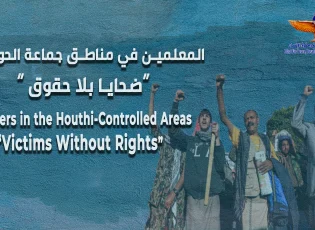Maat Foundation issues the initial report to follow up the first round of the second phase of the 2015 parliamentary elections
The voting process complies with the standards of free and fair elections and the state has demonstrated clear impartiality
Electoral bribes and violating publicity are the most common negatives ... Discretionary participation 32.5%
 [responsivevoice_button voice = ”Arabic Male” buttontext = “listen”]
[responsivevoice_button voice = ”Arabic Male” buttontext = “listen”]
The Parliamentary Elections Observatory (Egypt 2015) of the Maat Foundation for Peace, Development and Human Rights followed the second phase of the parliamentary elections in its first round, with 1034 field observers and electoral district officials, distributed according to a carefully crafted action plan on 94 electoral districts, in 10 governorates, namely Cairo and Qalyubia Menoufia, Sharqia, Gharbia, Dakahlia, Kafr El Sheikh, Damietta, Port Said, North Sinai, with more than 92% of the number of electoral districts, which contain the number of 5392 polling stations visited by our followers, of which the number 4532, including more than 85% of the total number of polling stations during the two days of voting.
During the two polling days, the Parliamentary Elections Observatory of the Maat Foundation published seven statements in which it dealt with the course of the electoral process and the most important observations that were monitored, as well as the publication of instant statements first-hand on the observatory's page on the social networking site Facebook. The observatory also submitted a number of communications to the Supreme Committee during the polling days. For elections and the Ministry of Interior operations room.
According to what was monitored by the local team of Maat Foundation observers over the course of the two days, the polling process was largely consistent with the standards of free and fair elections, as facts that would have a fundamental negative impact on the conduct of the voting process were not monitored, nor were systematic fraud incidents detected, as well as The clear neutrality of the state apparatus during the voting process, the impartiality of the vast majority of the judges, heads of the polling committees, as well as the neutrality of the vast majority of the supporting employees.
The Parliamentary Elections Observatory also monitored the insurance process, which witnessed a remarkable development from previous entitlements, and our observers noticed the security forces ’keenness to preserve the safety of citizens, the conduct of the electoral process and non-interference in the conduct of the polls, which was evident in the security forces’ intervention to break all the skirmishes and strains that occurred. Before the committees, and not allowing these altercations to affect the progress of the process, the insurance forces also showed cooperation with the followers of the Maat Foundation, except for some individual cases that did not violate the intransigence of some officers with some followers and not allowing them to enter the committees, as well as limited altercations between some recruits and some voters or Candidate delegates.
The second stage did not witness the occurrence of significant violent incidents, with the exception of limited cases in North Sinai Governorate, and a suspicion of a structural device in one of the departments of Dakahlia Governorate, after which it appeared to be free of explosive materials.
The Parliamentary Elections Observatory of the Maat Foundation monitored the performance of the Supreme Elections Committee, which was good during the voting period and was relatively better than the first stage, and that the general situation is good and satisfactory to a large extent in light of the atmosphere in which the electoral process is taking place, and the problems facing the committee remain as problems Logistical related to the transfer of judges, which led to the delay of some judges in reaching the polling stations for periods ranging from half an hour to an hour, and the delay of the return of voters and employees to the polling stations after the end of the rest period at midday.
In general, the judges and employees dealt with the electoral process very well, with limited exceptions, which were represented by some committee officials directing voters, or refraining from helping some of those in need, as well as limited cases of obstinacy against field observers in the governorates of Qalyubia, Sharkia and Cairo.
The first round of the second phase also witnessed a poor performance by a large number of the marchers at the level of violating the rules of the electoral process. These violations and irregularities were represented in the candidates providing collective transportation means to transport citizens from their homes to polling places and then returning them to their homes, as was the most prominent Violations: Candidates ’supporters provide food and drinks to voters in front of the polling stations, as well as some candidates using propaganda means in front of the polling stations. It has also been observed that the representatives of some candidates or their supporters direct the voters to vote for their candidates in front of the polling stations, while the electoral process witnessed in its first round of the second phase Outstanding features of some candidates offering financial and in-kind bribes to the voters to cast their votes in their favor, a phenomenon that has been detected in most districts to varying degrees.
Although the security forces moved to prevent many of these practices in front of the polling stations, and arrest a number of perpetrators, most electoral bribery operations were carried out far from the polling stations, and thus they were not comprehensively confronted.
This round witnessed high participation compared to the first stage of the electoral process, and women in it had the highest say, as the committees witnessed a heavy turnout by women from early morning to the first day until the committees were closed, and men over 40 years old came in second place, while there was a noticeable absence of young people like the stage First.
The last hours witnessed heavy participation in many committees. The following table shows the estimated percentages of the governorates that the Parliamentary Elections Observatory of the Maat Foundation for Peace, Development and Human Rights followed up on during the polling days, except for North Sinai, in which an estimated percentage could not be obtained during the specified date.
| M | Governorate | Estimated percentages | |
| 1 | Cairo | 26% | |
| 2 | Western | 27% | |
| 3 | Monufia | 36% | |
| 4 | Kafr El Sheikh | 38% | |
| 5 | Eastern | 40% | |
| 6 | Dakahlia | 45% | |
| 7 | Damietta | 48% | |
| 8 | Port Said | 23% | |
| 9 | Qalyubia | 39% | |
| The overall average | 32.5% | ||
The figures in the table indicate that the general average of participation may reach 32.5% of the total enrollment in the polling tables in the nine governorates, in which an inspection was conducted at some polling stations until eight thirty in the evening of the second day of the voting process, but the participation rates were relatively high in Some governorates, especially rural ones, are relatively low in urban governorates, such as Cairo and Port Said.
Maat Foundation notes at the conclusion of its initial report the need to take more decisive legislative measures towards the two phenomena of paying electoral bribes and practicing illegal propaganda, and it also indicates the need to develop the institutional mechanisms of the Supreme Elections Commission to confront these negative phenomena, as well as the need for a full investigation into the reports submitted by organizations. Civil society or the statements contained in its published reports.











